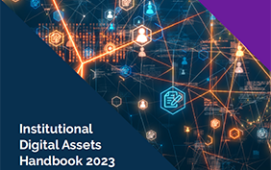
As asset owners take more control of their investments, doing the kind of due diligence and research usually associated with asset managers, one group of participants is providing fellow institutions with a novel way to meet their ESG mandates and obligations.
Amsterdam-based Sustainable Development Investments Asset Owner Platform (SDI AOP) has partnered with global index and analytics provider Qontigo to make its own SDI data available to other institutions and asset managers. Aside of pure data distribution in flat files, Qontigo has also developed a portfolio evaluation application for this SDI data. Users can upload their portfolios to the SDI Dashboard and assess it against the United Nations’ Sustainable Development Goals (SDGs).
SDI AOP, which was founded by Dutch pension investment firms APG and PGGM along with AustralianSuper and British Columbia Investment Management Corporation (BCI), is making the data widely available to encourage more users to bolster its SDI measures and enhance their SDI analytics capabilities.
“The platform is not run as a business,” Qontigo managing director Adrian Zymolka told ESG Insight. “The offering comes from the industry and is designed for the industry, answering a need in the asset owners field in view of increasing scrutiny required on reporting and for portfolio management.”
Asset Owner Evolution
Technology is enabling asset owners of all sizes to assume some of the duties of external asset managers amid increasingly complex regulatory obligations and as servicing costs rise. Among them, US pension giant the California State Teachers’ Retirement System (CalSTRS) last year created its own ESG team. The trend has also been fuelled by an exodus of sustainability talent – especially those with stewardship skills – from asset owners to managers.
The SDI was created in 2020 because asset owners were having difficulty in finding the data and expertise that they needed from the sustainability data market. The user base, which manages assets totalling USD$14 trillion, works as a community to provide feedback and guide further data improvement research.
Deutsche Börse Group majority-owned Qontigo, which was formed from the merger of Axioma, DAX and STOXX, is the exclusive global distributor of the Dashboard. Zymolka said that the brewing pressures on asset owners to pay more attention to sustainability – be it from regulators or investors – means that they need specialised products.
“They have to report back to their investors, who may want to drive particular goals as we see more taking an activist approach,” he said. “As an asset owner you want to really be able to go into companies and make sure that they are moving in the right direction. In addition, there is a lot more scrutiny in terms of greenwashing.”
SDI research director James Leaton conceded such an endeavour was unusual for asset owners, but said it was important that they had a service that suited their particular needs.
“We’re responsible for the governance, of determining the rules, making sure the quality is up to scratch and really driving the direction of travel to meet the needs of asset owners,” Leaton said.
SDG Not ESG
The founding asset owners were clear in their determination to ensure the tool reflected not just what Leaton calls “general ESG” but was built specifically to assess assets according to the UN SDGs.
“It fills a gap because it’s focusing more on solutions and opportunities,” he said, adding that the wider ESG market was focused more on risk and compliance. “It doesn’t explain where the growth areas are or how we solve climate change, which is more where we’re focused.”
By concentrating on the SDGs, SDI AOP’s service considers a broader range of sustainability parameters which are encoded in the UN SDGs like, infrastructure, pollution, food, and health and safety.
“It’s a more complete framework rather one that is rolled out piecemeal through climate and then biodiversity and then some social – you’ve got everything there to start with and it puts clients in good stead for what’s been coming through various regulatory regimes,” Leaton said.
The Dashboard is governed by SDI AOP’s own taxonomy, which it applies to the publicly available revenue data of more than 9,500 companies globally. The taxonomy classifies the different sources of earnings according to the various SDGs and reviews them regularly to add new categories. Those metrics are aggregated at the company level to give a picture of each company’s total SDG alignment.
All metrics are validated by experts within SDI AOP before being distributed and uploaded to the Dashboard. Where data is lacking, human experts are brought in to estimate values. Those results are accompanied by a confidence score that quantifies the level of estimation and the confidence in the final assessment.
Leaton said SDI AOP believes this approach gives the broadest and most transparent picture of a portfolio’s sustainability performance.
“This method rules out any disclosure bias that could result in some large European mining company receiving a high score simply because it’s been pushed to report its data for years, while a small Asian company is excluded from some methodologies simply because it doesn’t have a culture of reporting this information,” he said.
Wider Use
The appeal of the dashboard has extended beyond asset owners to asset managers that range from behemoths like Blackrock, hedge funds, including Bridgewater and boutique houses such as Redwheel.
As the client roster grows, so SDI AOP has been adding greater functionality. Among such developments, it has broadened its coverage to fixed-income assets, and in another initiative the organisation has created an Innovation Outlook tool, which maps patent information against the SDI taxonomy.
“This gives clients something to think about in terms of which companies are going to be providing the future solutions and which are most active in their research and development that we can see aligning with sustainable technologies,” Leaton said.
Subscribe to our newsletter




